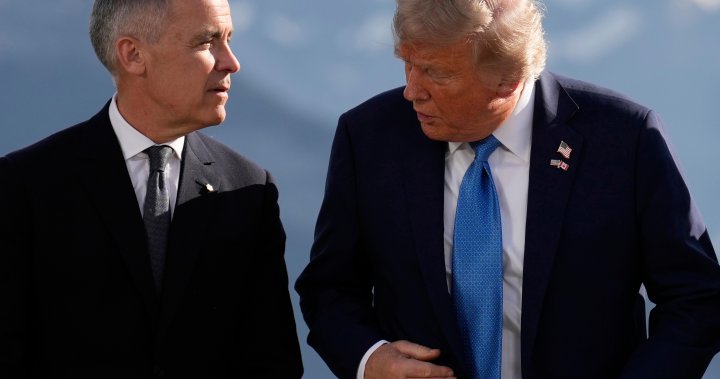In the sprawling landscape of North American economic relations, a fresh vision is emerging for the future of Canada-US trade. Robert Asselin, a former advisor to Prime Minister Justin Trudeau, has proposed a bold new approach: a “sustainable trade” agreement between the two nations that would transcend traditional commerce barriers while addressing pressing environmental concerns.
Speaking at a recent economic forum in Ottawa, Asselin, who now serves as senior vice-president at the Business Council of Canada, emphasized that such an agreement could represent a strategic pivot in bilateral relations. “We need to look beyond conventional trade frameworks and create something that aligns with our shared climate goals while still promoting economic prosperity,” he stated.
The timing of this proposal is particularly significant. With the United States presidential election looming in November, Canadian officials are increasingly concerned about potential shifts in trade policy, especially given former President Trump’s previous protectionist stance. According to CO24 Business analysts, any return to Trump-era trade tensions could severely impact Canada’s economy, which sends approximately 75% of its exports south of the border.
Asselin’s proposal centers around creating a unified North American industrial strategy that would position both countries as competitive forces against China’s growing economic influence. “We should be collaborating on critical minerals, clean energy technologies, and advanced manufacturing,” Asselin noted in his address. “These sectors represent not just economic opportunities but strategic necessities in a rapidly changing global landscape.”
The concept has gained traction among some Canadian political circles, where concerns about economic security have intensified following global supply chain disruptions during the pandemic. Trade Minister Mary Ng has previously signaled openness to innovative trade approaches, though her office has not directly commented on Asselin’s specific proposal.
Economic experts from the C.D. Howe Institute have cautioned that implementing such an ambitious agreement would require navigating complex political waters. “Any new trade framework would need bipartisan support in the United States, which is increasingly difficult to secure in today’s polarized environment,” noted Jennifer Williams, a senior trade analyst at the institute.
The proposal comes amid growing tensions in several trade sectors, including softwood lumber, dairy, and clean technology subsidies. The Biden administration’s Inflation Reduction Act has particularly strained relations by offering substantial incentives for US-based clean energy production, which some Canadian manufacturers view as disadvantageous to their market position.
Environmental organizations have cautiously welcomed the concept of sustainability-focused trade but remain skeptical about implementation details. “The devil is always in the details,” said Michael Brauer of the Canadian Environmental Alliance. “We’ve seen promising trade language on environmental protection before, but enforcement mechanisms often lack teeth.”
Business leaders across multiple sectors have expressed varying degrees of support. The Canadian Manufacturers & Exporters association has endorsed the concept, while agricultural groups remain concerned about potential new regulatory burdens that could affect their competitiveness in the world markets.
As both countries navigate economic uncertainty and climate challenges, the appetite for innovative policy approaches continues to grow. The question remains: can Canada and the United States overcome their domestic political hurdles to forge a truly forward-looking trade relationship that balances economic growth with environmental stewardship? The answer may well determine North America’s economic trajectory for decades to come.














